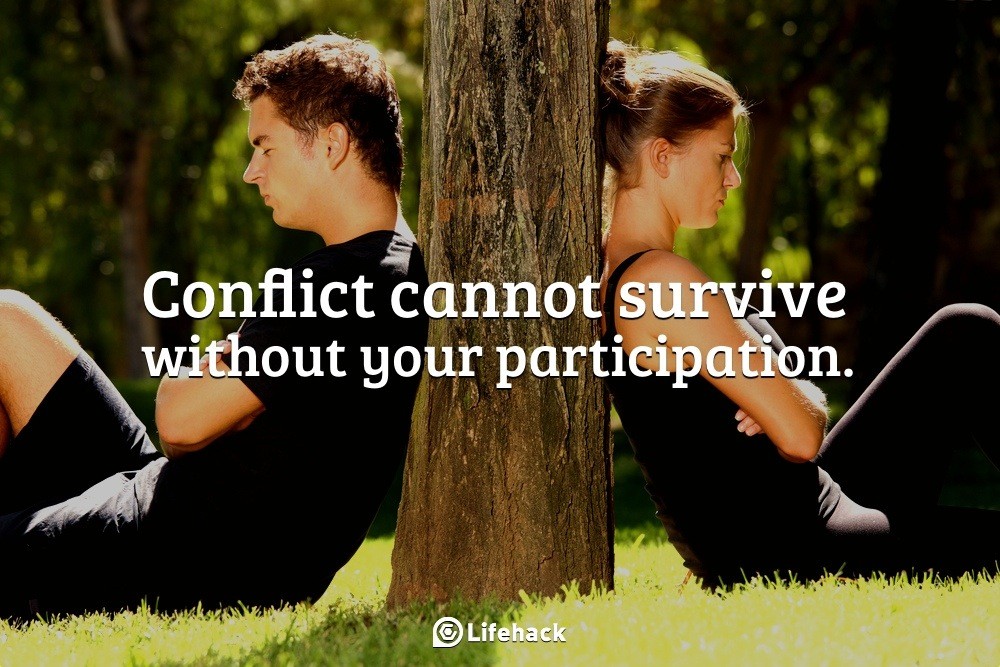It really shouldn’t be this way. The question is, how do you work through and resolve an issue before everything hits the fan? It’s really pretty easy if you learn to watch your triggers, slow things down, and remember you love the person you’re having a conflict with. Here are some first steps to make it happen:
#1 Know your triggers
Everything is easy to control on the front end—that’s why you have to pay attention to your triggers. Triggers are what set you off and cause things to quickly spin out of control. Before you come back with a less than Christ-like response to your loved one during an argument, you’ll want to pay attention to your tone of voice, facial expressions, and body language.
#2 Take a deep breath
Deep breathing has a calming effect on the central nervous system. Men are especially prone to being flooded by strong emotions during an argument, so taking a few deep-relaxing breaths during a conflict can help calm things down.
#3 Slow it down
When emotions are hot we often say things we don’t mean, which is why it’s important to slow things down during conflict. Taking a time-out is a great way to collect your thoughts and re-engage later when you have a better perspective on things. Don’t be afraid to ask your spouse for a time out, but agree together when you will come back and revisit the issue, as just walking away can send the message that you don’t care.
#4 Be willing to listen
Most of us suck at listening. We think we’re doing a great job, but in reality we’re so busy trying to frame our own argument that we fail to really listen to the other person’s heart. Listening means looking at the other person and hearing their concerns, and not interrupting until that person is finished talking. It also means reflecting back what that person has said to make sure that they have been completely understood. After that, it’s your turn to talk.
#5 Practice empathy
Take the time to cultivate love, empathy, sympathy and compassion toward others, as these virtues will help you understand your mate better. If you can put yourself in another person’s shoes when conflict arises, it will help you listen better and reach a compromise quicker.
#6 Surrender your rights
When we’re in conflict with another person, we hold tightly to our rights to be understood. We also want to win the argument and drive our point home. Be willing to surrender your right to be understood and be willing to walk in humility: doing so can change the entire course of the disagreement.
#7 Memorize this
Here are nine power-packed words that will help can conflict; commit them to memory. “I’m sorry. I was wrong. Please forgive me.” Use them generously.
Make a repair attempt
When emotions are heated, the last thing we want to do is move toward our mate, but that’s exactly what we need to do. A repair attempt is something we do to re-connect. Remember to use “I” statements to talk to your partner, rather than “you” statements: instead of saying “you hurt me when…” for example, switch it to “I feel hurt when you…but I want to resolve this together because I love you”. This deflects any blame from them, and encourages their empathy towards you.
Don’t play the blame game
Most of us are quick to drag past offenses into the present situation; don’t do it. Stick to the issue at hand. Blaming your mate won’t get you anywhere and will only serve to ramp up the other person’s defenses. Instead, try practicing humility, which will turn things around quickly. Conflict is unavoidable in life, and can actually be beneficial if you approach it with the right attitude because it gives you a chance to get a window into your partner’s soul. It can also open the door to personal growth and maturity if you’re willing to implement the strategies mentioned above. Remember, at the end of the day it’s not always about being right, it’s about being attuned to the person you love. Back at you: How do you find yourself handling conflict? What has worked and what hasn’t?
